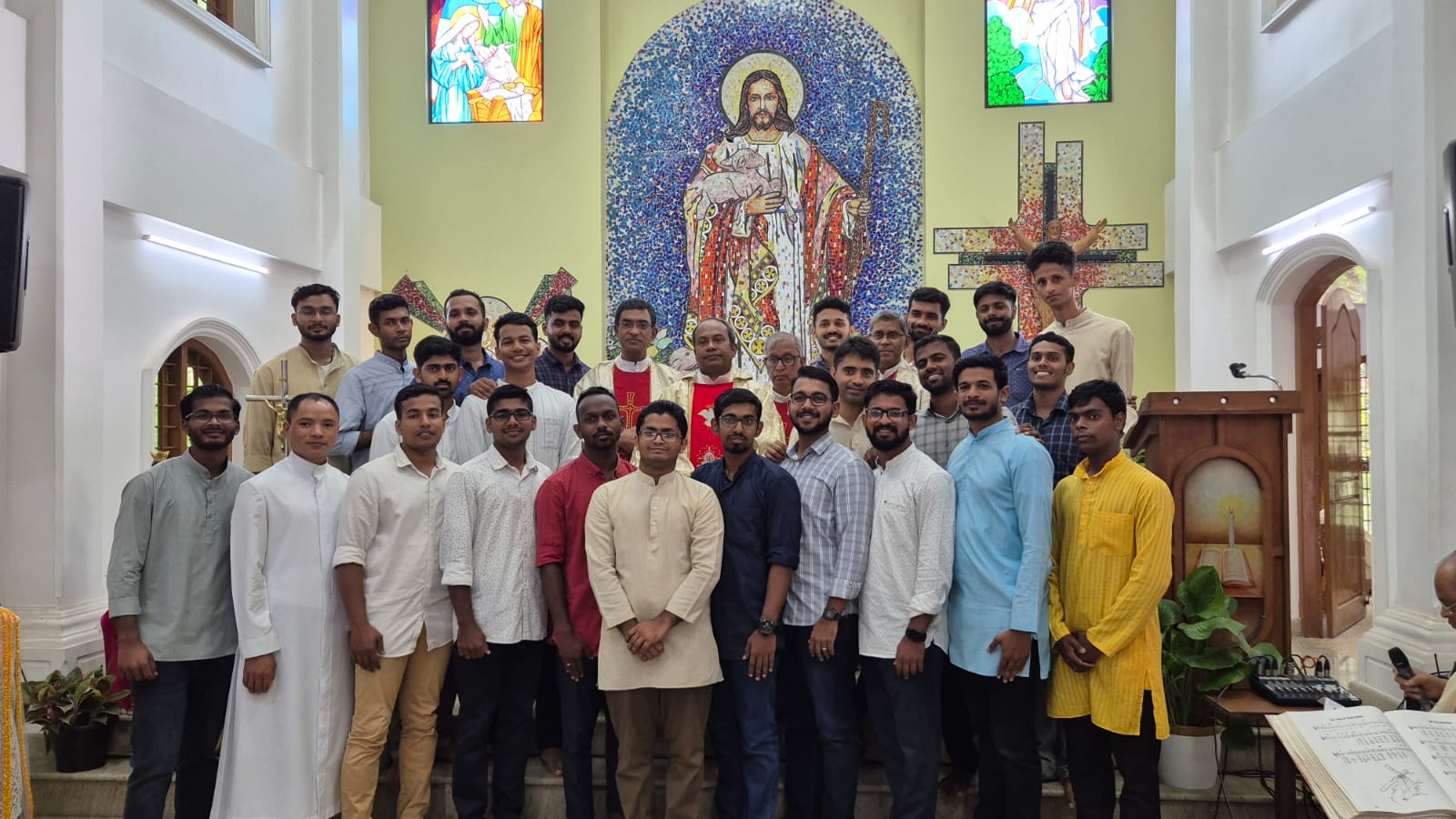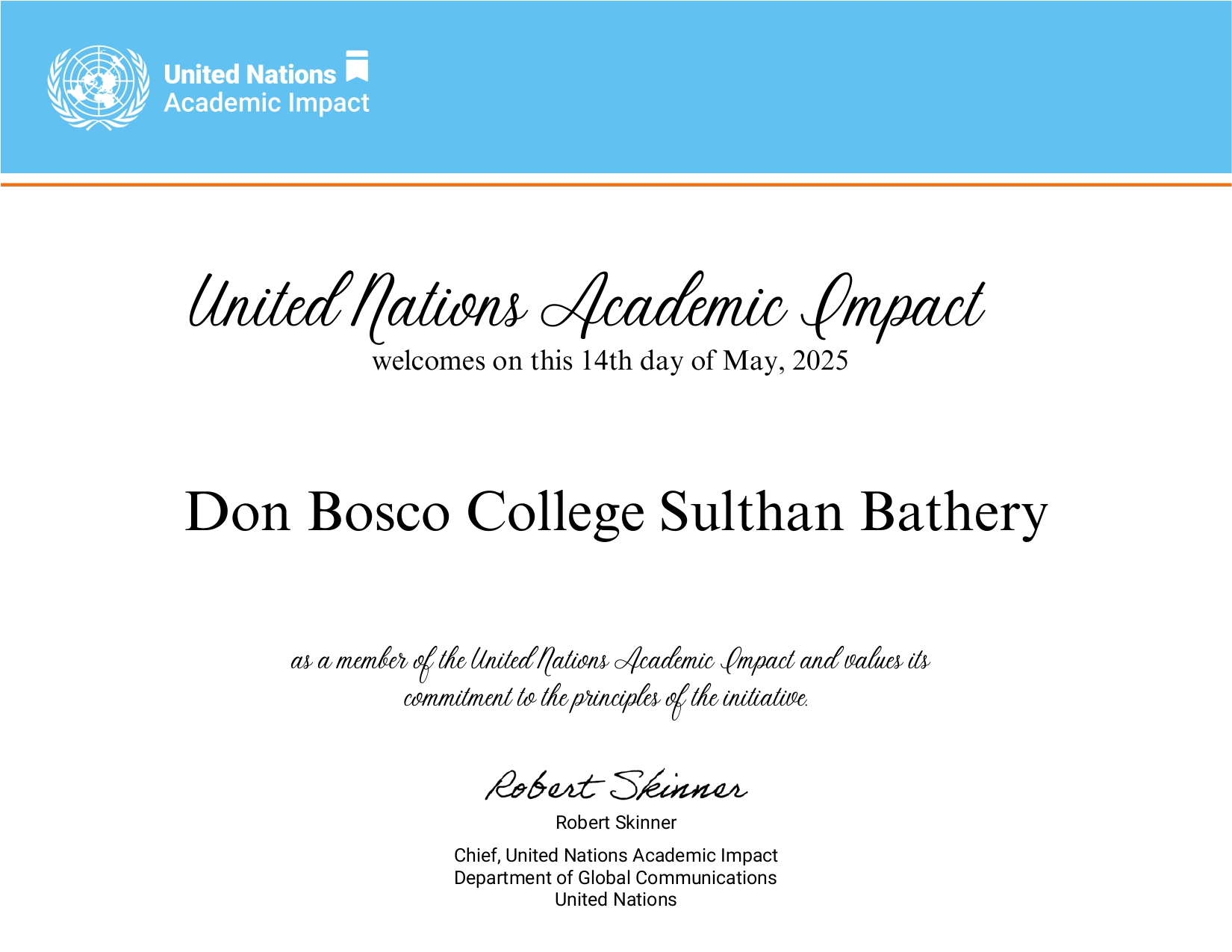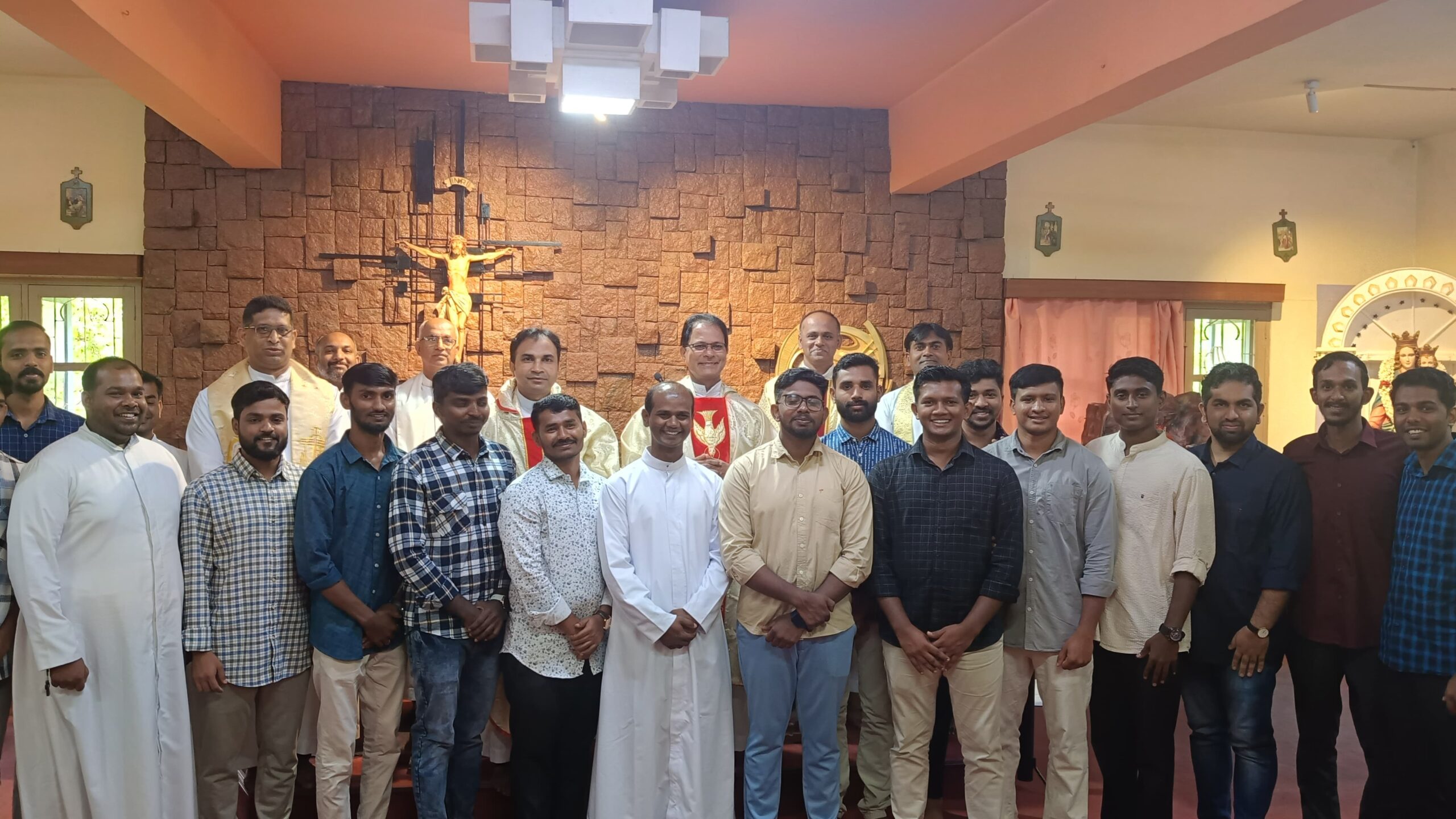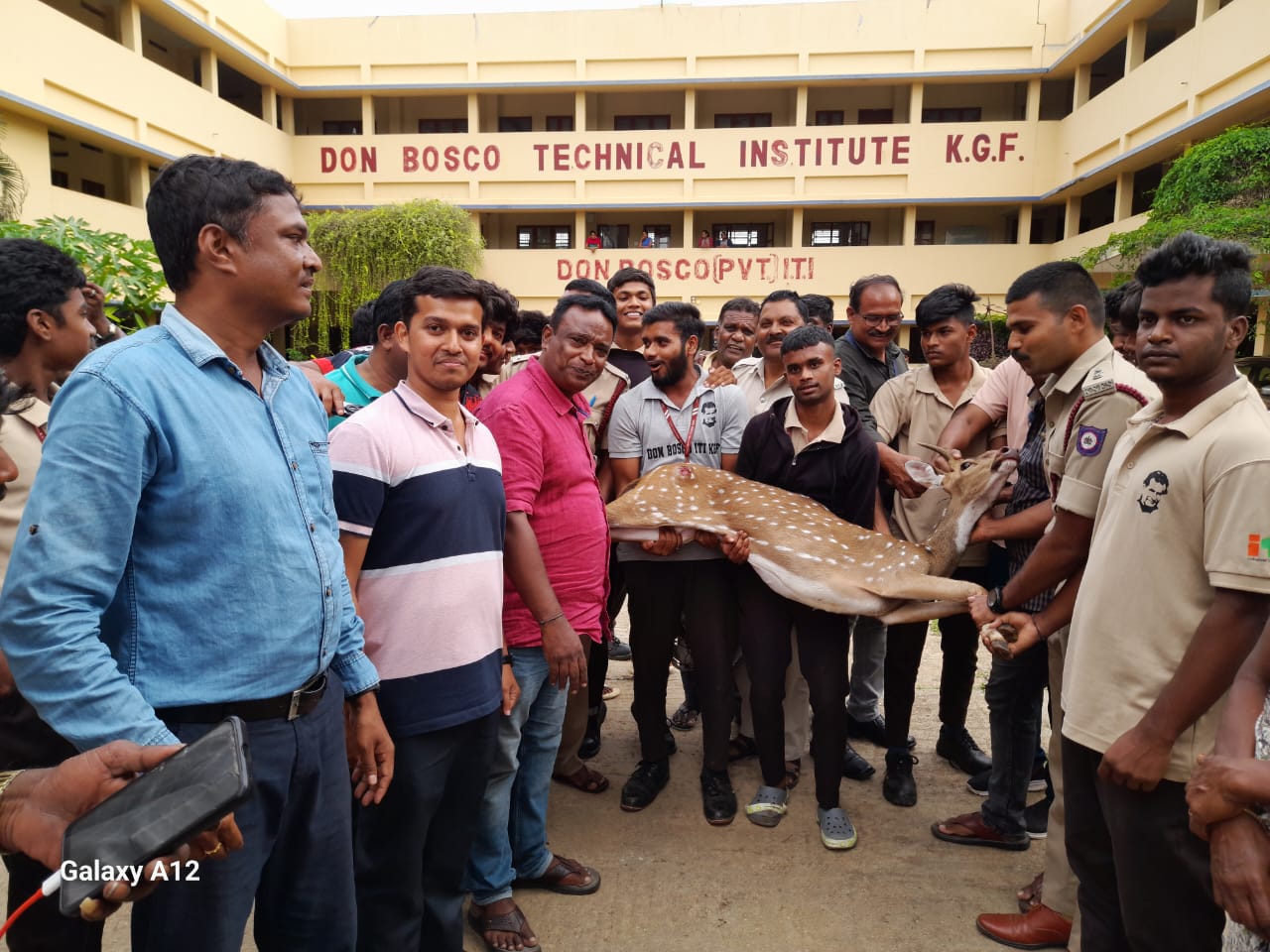
REDISCOVERING THE CENTRALITY OF CHRIST IN OUR LIVES
“Apart from me you can do nothing” (Jn 15:5). These words spoken by Jesus during the intimacy of the Last Supper is a solemn reminder that must resonate deep within our souls, drawing us back to the source of all authentic Christian life – the living Christ. We can do nothing – nothing lasting or true – without being deeply rooted in Him. Like branches of the vine, we are called to draw the vital sap of life from Christ, our only true foundation and sustenance.
The 29th General Chapter with its beautiful theme “Passionate for Jesus Christ, Dedicated to the Young” invites us to rediscover this centrality, not as an abstract concept but as the throbbing heart of our Salesian life and mission (ACG 441, pp. 6- 7). Jesus Christ is not only the foundation of our vocation; He is the companion on our journey, the Way that guides us and the Goal we long for. As consecrated Salesians, to live a life centered on Jesus, we need to reshape our existence around three key pillars: nurturing our vocation, building communities that reflect the face of Christ and exercising authority as authentic service (C 49, 55, 121). These three pillars form the backbone of our consecrated life. However, each finds its true meaning only when lived in a deep and vibrant relationship with Jesus, our Master and Savior (ACG 441, p. 9). This path of fidelity, as Don Bosco taught, will enable us to be signs and bearers of God’s love, especially to the young and the poor (C 1, 88).
1. Caring for Our Own Vocation and that of Others
A vocation is not our merit or the result of our desire, but a gift, a free act of love from God (C 22). Each vocation is unique, unrepeatable and carries with it the responsibility to carefully and faithfully nurture this gift. Our first and highest vocation is to remain united to Christ, for without Him our efforts are nothing and fruitless (Jn 15:5). This “nothing” refers not only to the external success of our actions but also to our deep inner life of spirituality.
Nurturing Our Own Vocation: Tending to the Gift of God
Our personal vocation is not something to be taken lightly. It cannot simply be treated as a one-time response to a call received in the past. Each day we need to renew that initial “yes” (C 23) and approach the source – Christ – drawing new life from Him. Without the ongoing nourishment of our interior life, we risk slipping into a mechanical, routine and lifeless practice of our religious life. To remain vibrant we
must be fed constantly by our practices of piety, such as the daily Eucharist, reading of the Word of God and personal prayer.
Nurturing our vocation through the Eucharist means welcoming Christ into our lives and allowing Him to transform every aspect of our being. The Eucharist is not merely a ritual; it is the place where our lives are renewed and where we are shaped by the total self-gift of Christ (C 88). Without this nourishment, we risk becoming “dry branches”, unable to bear fruit (Jn 15:5).
In this regard, I would also like to remind ourselves that caring for our vocation includes the responsibility of looking after our bodies, the “temple of the Holy Spirit” (1 Cor 6:19). Don Bosco himself highlighted the importance of physical health so that we may serve the young with energy and vigour (C 18). Caring for our bodies is a responsibility that constitutes an essential aspect of our vocation, as a weak or
neglected body cannot sustain the intensity of our mission.
Nurturing the Vocation of Others: Accompanying with Love and Care
Accompanying others in their vocation is an act of great responsibility and love. Just as God has called us and entrusted us with the care of our own spiritual journey, we are also called to be guardians and companions on the vocational journey of our confreres as well as of the young (C 37). Vocational accompaniment is not about control or direction; it is about walking alongside others, supporting them with
tenderness and patience, and respecting the timing and the ways in which God works in each heart (ACG 441, p. 25). Don Bosco taught us the art of spiritual accompaniment, rooted in love and intense listening. Accompanying a vocation means recognizing the presence of God in other persons and helping them to discern His will for their life. This requires time, patience, and above all, a profound capacity
for empathy – the ability to enter the heart of another without imposing ourselves, and exhibiting care we are wont to give to sacred mysteries (ACG 441, p. 23).
Accompanying the vocation of others is also a journey of reciprocity. Helping others grow in their calling challenges us to deepen our own, as every vocation reflects something unique about the face of God (C 49). As a Salesian community we are called to embody this dimension of accompaniment with sincere and generous love, fostering an environment where every vocation can flourish, and mature in joy and
fidelity. In particular, in our mission to the young we must recognize that every young person carries within oneself a calling, even if it is still hidden or in the process ofdiscernment. Our responsibility is to create spaces and moments where these young people can hear the voice of God, discover His plan of love for their lives and find the courage to respond generously.
2. The Community: A Sign of Eucharistic Presence
In every Salesian community we are called to live and witness to the presence of Christ as living members of His body (C 50, 88). A Salesian community is not merely a place of coexistence but a reflection of Trinitarian communion – a small glimpse of heaven on earth, where we strive to live the Gospel values of sharing, welcoming and mutual respect. Our fraternal presence is a prophetic sign of a renewed humanity, capable of transcending the barriers of individualism and self-centeredness (C 49).
As Don Bosco teaches us, the community is not a static reality but a dynamic one; it is a living organism that is built up day by day through love and mutual service (C 51). It grows and is strengthened as each member recognizes in the other a gift from God, a brother with whom to walk toward holiness. The community thus becomes a visible sign of the Eucharistic presence. Every act of fraternity, every word of
encouragement, every sacrifice made for the good of another is a concrete witness to this living and active presence (ACG 441, p. 39).
Fraternity as a Prophetic Witness
As GC27 reminds us, living fraternity becomes a prophetic and powerful sign of the Gospel. It is not easy; it requires patience, understanding, the ability to accept the other and to forgive the other’s fragilities (C 52). Yet, it is in this daily challenge that the Salesian community becomes a prophetic sign. Within our communities we are called to “live and work together” in concrete ways such as daily gestures of welcome, support and sharing (C 49). Each Salesian community becomes a school of love, where we learn to walk together, support one another and build bridges instead of walls (C 50).
Don Bosco always believed in the value of collaboration and in the active participation of all members of the educational and pastoral community. It was with the young that he founded our Society. Walking together means not only sharing responsibilities, but above all, sharing faith, listening to God’s voice together and discerning the signs of the times (C 47). It is an experience of faith that invites us to place at the center not our own ideas, but God’s will, which manifests itself through communal discernment and mutual listening (ACG 441, p. 49).
3. Authority as Prophetic Service
According to the Salesian charism authority is grounded in kindness and service. Don Bosco taught us that true authority is not imposed, but is one that wins hearts (C 55). Salesian authority is paternal and gentle, characterized by the ability to welcome, listen and accompany – much like a father caring for his children. It is not about exercising power, but about helping each person grow in freedom and
responsibility (ACG 441, p. 42).
In the Gospel Jesus provides us the perfect model of authority – an authority manifested in service. In the scene of the washing of the feet (Jn 13:1-17) we see how Christ becomes a servant, turning human notions of power upside down. He teaches us that true power is the power that stoops to lift others up, the power that humbles itself to raise up others. This is the challenge we are called to live in our communities – an authority that becomes service, that promotes the growth and well-being of everyone, especially the weakest and most vulnerable (C 13, 55
Authority as Self-gift
For us Salesians the concept of “authority as self-gift” is central to our mission and identity. Don Bosco spent “himself” and “all what he had” for the benefit of his boys. Inspired by the Good Shepherd who “lays down his life for his sheep” (Jn 10:11), He was ready to go to any length for the benefit of those in his charge. By prioritizing self-giving over self-serving Salesians create an environment where each individual can discover their potential and grow in freedom and responsibility. The body broken and blood shed for the life of the world which the Salesian celebrates daily in the Eucharist gives an impetus to let himself be broken for others. It is not a leadership that imposes or dominates, but a service for which he offers himself or consumes himself, on behalf of others. As Salesians we live this Eucharistic logic here authority is not an exercise in power in order to control, instead a loving presence, patient accompaniment and humble service (C 121). It is an authority that places itself at the service of the spiritual, human and vocational growth of each confrere, each member of the educational and pastoral community (EPC) and of
every young person (C 55). It is an authority that breaks itself and offers itself, so that each person can live one’s vocation to the fullest.
Intercession of Mary
Dear confreres, as we journey toward the 29th General Chapter, we are called to rediscover with renewed vigour and depth our passion for Jesus Christ and our dedication to the young (C 1). These two “loves” are inseparable. Living with passion for Christ means being passionate about the young, and dedicating oneself to the young means living in Christ (ACG 441, p. 18). Every day we are invited to renew our “yes” to Christ, living this “yes” in a fraternal community, where God’s love is made manifest in concrete relationships, the sharing of gifts and the synodal journey we
undertake together (ACG 441, p. 28). Our authority, as the Gospel and Don Bosco teach us, must always be a service – a humble, loving service that helps others to grow and flourish in their vocation. May our Bl. Mother, in this month of the Holy Rosary, teach us to live our “yes” to God with joy and trust. Through her example, we learn to give our lives generously, to live authority as service and to build communities that are prophetic signs of Christ’s presence in the world. Thus, animated by our passion for Christ and dedication to the young, we can live ourSalesian mission as a shared path to holiness.
Wish you all, dear confreres, a very fruitful month of the Holy Rosary filled with the blessings of our Bl. Mother. Happy Feast of Our Lady of the Holy Rosary!
Yours affectionately in Don Bosco,
-
LENT: A JOUR...
29 March 2025 -
“ANCHORED IN...
14 February 2025 -
JUBILEE 2025...
08 February 2025 -
THE BIRTH OF...
08 January 2025 -
MONTH OF NOV...
13 November 2024 -
REDISCOVERIN...
13 October 2024 -
SYNODALITY A...
13 September 2024 -
INDEPENDENCE...
04 August 2024 -
THE SACRED H...
04 August 2024 -
THE SPIRITUA...
04 August 2024










